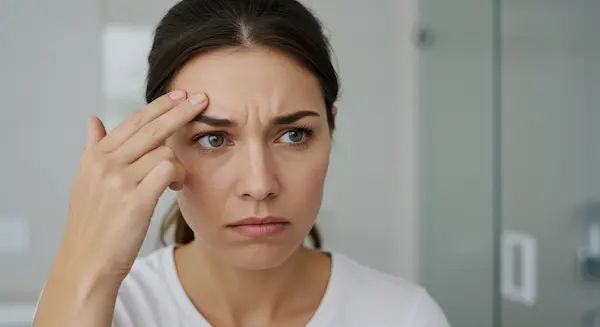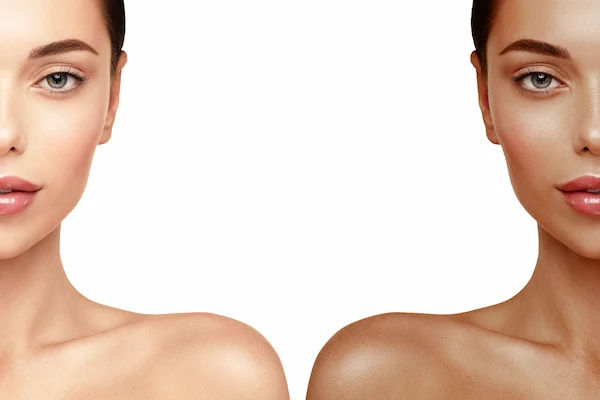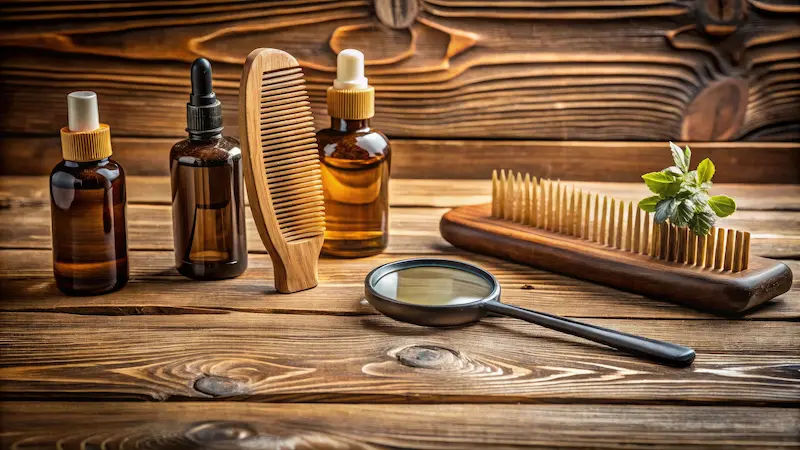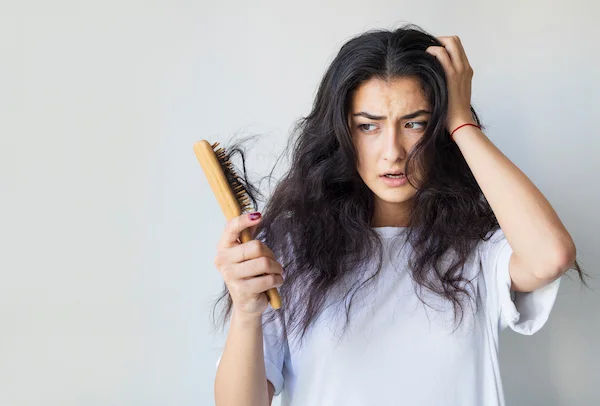- Female
- 20 Years
- 22/01/2025
I'm experiencing hair fall after recovering from typhoid fever. What steps can I take to minimize this shedding? Any advice would be really appreciated.
Answered by 1 Apollo Doctors
Typhoid fever can cause hair loss due to the physical stress it puts on the body. To reduce hair fall after typhoid fever:
Nutrition and Supplements
- Protein-rich diet: Include protein-rich foods like fish, eggs, beans, and nuts to help rebuild hair follicles.
- Iron supplements: Iron deficiency is common after typhoid fever. Consult your doctor about taking iron supplements.
- Vitamin B complex: Vitamin B complex, especially B12, plays a crucial role in hair growth. Consider taking supplements or eating foods rich in vitamin B.
- Omega-3 fatty acids: Omega-3 fatty acids, found in fish oil supplements, promote hair growth and reduce inflammation.
Hair Care
- Gentle shampooing: Use a gentle, sulfate-free shampoo to minimize hair breakage.
- Reduce heat styling: Avoid heat styling tools like flat irons, curling irons, and blow dryers, as they can damage hair and lead to breakage.
- Use a wide-tooth comb: A wide-tooth comb is gentler on hair than regular combs or brushes, which can cause breakage.
- Avoid harsh chemical treatments: Postpone chemical treatments like hair dyeing, perming, or straightening until your hair has fully recovered.
Additional Tips
- Stay hydrated: Drink plenty of water to help your body recover from typhoid fever and promote hair growth.
- Reduce stress: High stress levels can contribute to hair loss. Engage in stress-reducing activities like meditation, yoga, or deep breathing exercises.
- Get enough sleep: Adequate sleep is essential for hair growth and overall health. Aim for 7-8 hours of sleep per night.
Consult your doctor or a dermatologist for personalized advice on reducing hair fall after typhoid fever.
Dr. Anshul Suggests...
Consult a Dermatologist
Answered 04/07/2025
3
0

More Dermatology Health Queries
View allWhat fruit is good for eczema?
Fruits with flavonoids such as Apples, Broccoli, Cherries, Blueberries, Spinach, Kale can be taken as they help in fighting inflammation. But many triggers might bring on eczema-related symptoms including what we eat and each person has different allergens. There's no one diet plan that suits all. It is better to have diet rich in fruits, vegetables and healthy fats according to your allergies.
Answered by 1 Apollo Doctors
I'm struggling with unwanted body hair and it's getting really frustrating, especially in areas like my underarms, lower abdomen, and butt. Shaving is such a hassle. Are there any places in Bangalore where men can get permanent hair removal treatments? I'm pretty anxious and would love some advice.
Yes there are successful treatment plans, visit Dermatologist for appropriate treatment
Answered by 1 Apollo Doctors
I've been struggling with dandruff and heard that tea tree oil might help. I'm curious if it actually works, and if it does, should I use it straight or mix it with coconut oil? Would love some advice on how to apply it properly.
yes you can use it
Answered by 1 Apollo Doctors
Disclaimer: Answers on Apollo 247 are not intended to replace your doctor advice. Always seek help of a professional doctor in case of an medical emergency or ailment.





